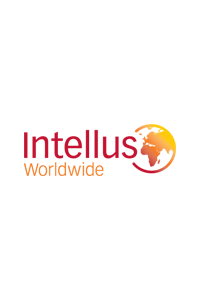Authored by: Emily Hoffman, Director
Last month I had the pleasure of attending the three-day Intellus Worldwide Summit in Philadelphia. The theme was ‘‘Inspiring Strategic Curiosity’’. The opening workshop led by Warren Berger, a self-proclaimed ‘Questionologist’, really set the tone for the conference theme.
In order to provide insightful recommendations, game changing ideas, and valuable solutions to the healthcare industry, we have to start the process by asking the right questions, which are sparked by curiosity. He posed the question of who the greatest question asked of all time is. Who is the GOAT of questioning? He posited Einstein, Oprah, Steve Jobs – a number of famous innovators and interviewers – before the big reveal that it is actually a four year old girl. If you are parent to a toddler or have been around one for a few minutes, you can probably relate. But this revelation began a discussion around why we begin to question less as we get older and the pressures that act against questioning – knowledge (“I know this now, I don’t need to ask more questions”), fear (“Will asking this make me look stupid? Am I overstepping?”), and time (“We need results by the end of the month, no time to reframe.”).
So the suggestion to approach our projects and challenges with curiosity and a beginner’s mind was a helpful reminder and reset for me. In times of dynamic change (aka our day-to-day lives in this modern era), approaching challenges with a curious mindset can help shift from panic mode to possibilities. To aid in asking questions from this mindset, Warren suggested embracing the power of “How might we…” to lead to open discussions of figuring out possibilities together.
So here are my top three ‘How might we’s’ from the various engaging and insightful sessions I attended:
- How might we utilize the Metaverse for research insights?
One session that I sat in on was the presentation of an interesting case-study where the researchers had conducted focus groups to better understand experiences with Endometriosis in a virtual setting within the Metaverse. The interviews were conducted via a laptop login rather than VR headsets, as the market penetration of those is not yet high enough. It made me think of how much more common shipping webcams was years ago, while now webcams are standard in most computers and smart phones. I personally think that the value of the immersive VR experience will make research in the Metaverse more valuable, once that technology takes off more widely, but in the meantime, the avatars we can create in the Metaverse provide for a unique way to get around some of the challenges in discussing sensitive or stigmatized healthcare topics.
- How might we integrate and harness various data sources to drive better outcomes?
Multiple sessions focused on topics relevant to this question – the use of AI, incorporating real world datasets into primary research findings, the relevance of genetic information, etc. Most interesting to me was a session by 23andMe looking at how the ability to offer personalized medical recommendations based on patient genetics could improve patient receptivity. I think there is great promise here not only in better patient outcomes but also in ability to identify patients most at risk and lead to earlier interventions.
- How might we change our thinking about the patient journey?
The discussion of Megatrends impacting market research highlighted the importance thinking about the macro environment trends impacting the patient journey. The example given was based on tracking trends through COVID, and how the changes in US employment rates, healthcare shortages, insurance providers, and health engagement would impact on the traditional patient journey. Continuing to understand how these macro trends are impacting patients can help us better devise strategies to positively impact patients.
This year’s Intellus Summit served as a timely reminder that healthcare market researchers can learn a lot from children who are always asking ‘how’ and ‘why?’. Former Merck CEO, Stefan Oschmann, once said, “In the pursuit of human progress, the single most important trait is curiosity – the desire to learn, explore, and discover. It is the driving force for new possibilities”. This is certainly true, and very much clear from the presentations I saw at the conference – constant curiosity inspires innovation. Indeed, most of the breakthrough discoveries and remarkable innovations throughout history are the result of curiosity. It is, therefore, essential that we as healthcare market researchers continue to cultivate our own curiosity. It is only by harnessing the power of curiosity and combining this with our knowledge, experience and expertise, that we can truly deliver the insights needed for pharma to make better business decisions and improve patient outcomes.
